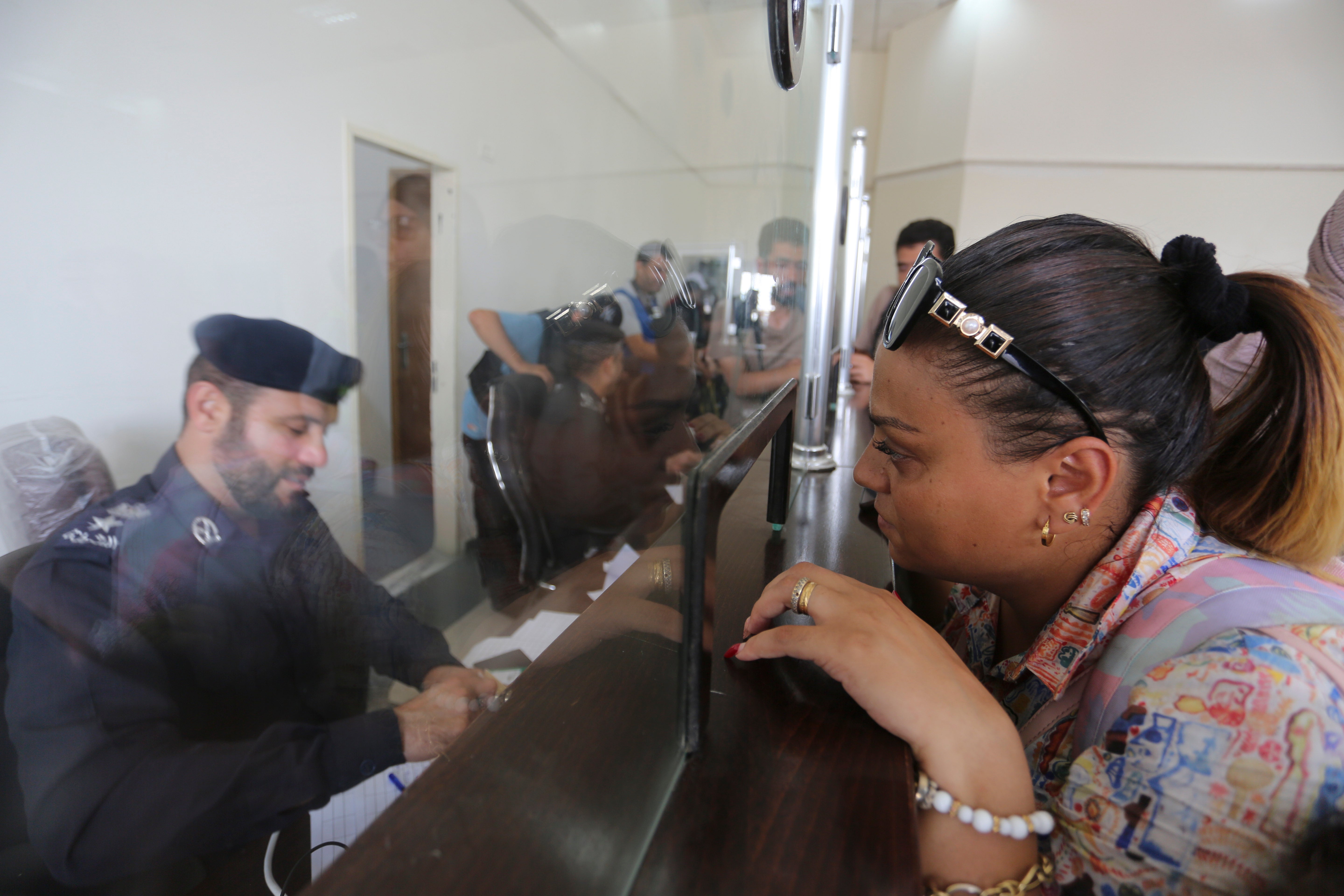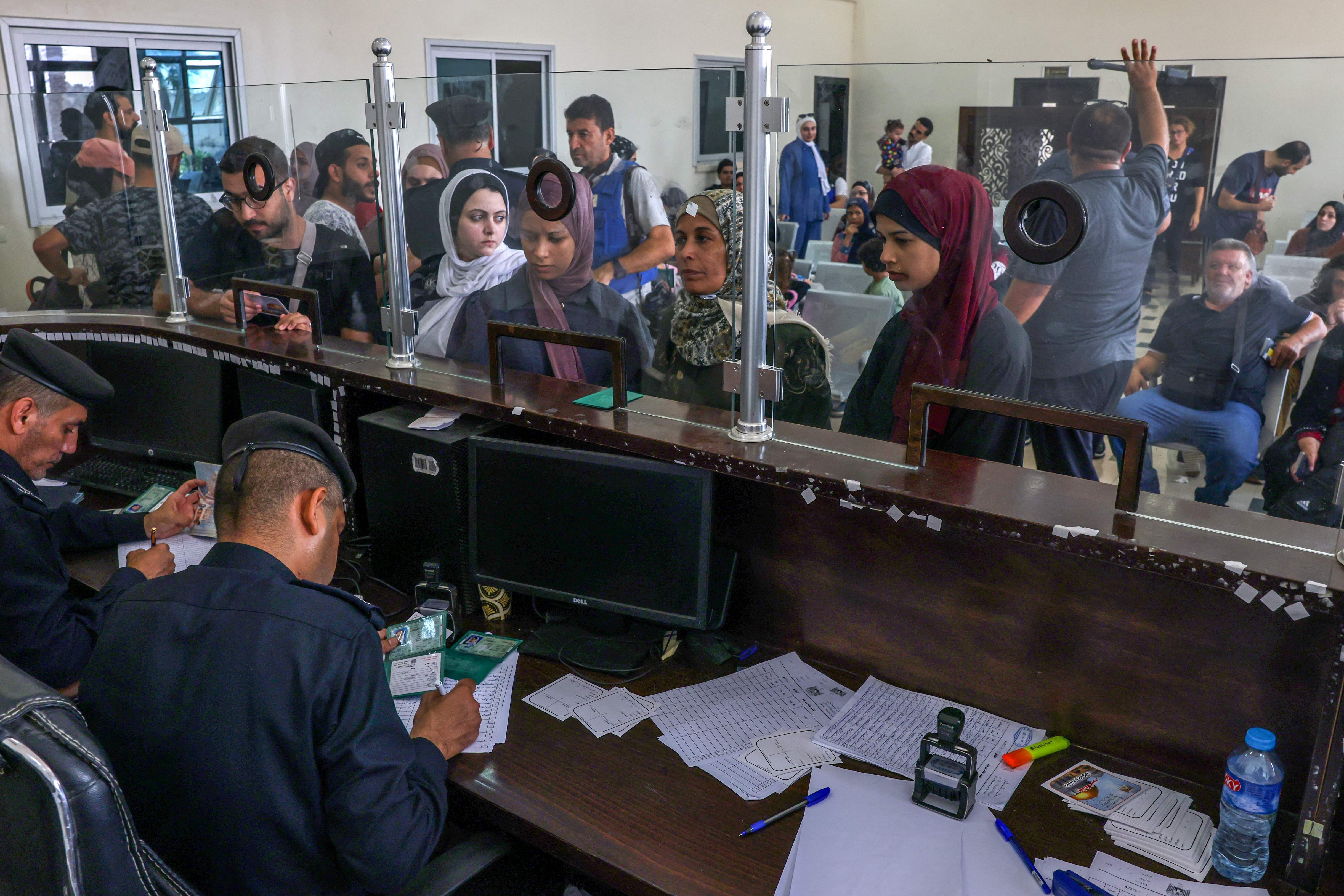Americans are still trapped under the bombs in Gaza, facing impossible choices
One American may be forced to choose between fleeing to safety without her family or staying in danger, write Bel Trew in Tel Aviv and Richard Hall in New York City.

Your support helps us to tell the story
From reproductive rights to climate change to Big Tech, The Independent is on the ground when the story is developing. Whether it's investigating the financials of Elon Musk's pro-Trump PAC or producing our latest documentary, 'The A Word', which shines a light on the American women fighting for reproductive rights, we know how important it is to parse out the facts from the messaging.
At such a critical moment in US history, we need reporters on the ground. Your donation allows us to keep sending journalists to speak to both sides of the story.
The Independent is trusted by Americans across the entire political spectrum. And unlike many other quality news outlets, we choose not to lock Americans out of our reporting and analysis with paywalls. We believe quality journalism should be available to everyone, paid for by those who can afford it.
Your support makes all the difference.After three weeks of running and sheltering from Israeli airstrikes that have killed more than 9,000 people, dozens of Americans began to leave the besieged Gaza Strip this week as part of a deal brokered by the US, Israel, Egypt and Qatar, which acted as a mediator with Hamas.
But many more are still trapped, and due to the murky and bureaucratic process to gain approval for evacuation, some remain in incredible danger and face impossible choices about what to do.
One 19-year-old Palestinian-American woman, who wished to remain anonymous, told The Independent that she had been desperately trying to contact US embassies across the region for weeks asking for help evacuating.
“I have not received any kind of support,” she wrote in a message to The Independent. “I have sent so many emails to American consulates in Jerusalem, Istanbul and even in Cairo telling them we need their help.”
Her situation is all the more complicated because she is the only US passport holder in her family; she was born to Palestinian parents in the US, but they are not citizens. She received news from the State Department on Wednesday that she would be added to the list of names approved to leave in the coming days, but she does not know if her mother, father and three younger sibling will be able to leave with her.

Her parents are also suffering from injuries caused by the bombing of an area they were told would be safe.
“We barely have something to eat, no water, electricity, internet connection and even medicine as my parents got injured due to the bombs around us after evacuating to a shelter in a safe place,” she said.
“My smaller brothers got terrified because of the sounds of bombs around us and my older brothers abroad have no way to contact us to make sure that we are still alive due to the poor internet connection,” she added.
At least 79 Americans have been able to leave Gaza and cross into Egypt since Wednesday out of more than 400 who were approved to leave under the deal brokered between Israel, the US, Egypt and Hamas, via Qatar.
Most left on Thursday, a day after US president Joe Biden declared on Wednesday that he had “secured safe passage” for wounded Palestinians and foreign nationals to exit Gaza following negotiations.
A senior administration official told The Independent the list is limited to US citizens, even though others connected to the US who lack citizenship — including “green card” holders and family members of both categories — may be in the process of being cleared to cross.
Responding to a question from The Independent about the potential danger faced by US citizens trying to make it to the Rafah crossing, National Security Council spokesman John Kirby said on Thursday: “We believe that the vast vast majority of American citizens who we know in Gaza are down there. But I can’t tell you with certitude that there’s not family members elsewhere that haven’t made their way down, or can’t make their way down.”

But intense Israeli bombing all over Gaza has made the journey perilous. One American family was reportedly injured in an airstrike while on the way to the Rafah crossing on Friday, according to a report on Al Jazeera.
There have been chaotic scenes at the border, too, for the last three days, as hundreds of desperate civilians waited to find out if their names were on the list of those to be evacuated. Wael Abo Mohsin, a Palestinian official in Gaza, said many different nationalities arrived only to find no one from their country was on the list.
Some Palestinian-American families spent days in a state of limbo waiting near the border before they were able to escape. Massachusetts family Abood Okal, Wafaa Abuzayda, and their one-year-old son Yousef were visiting family in Gaza when the war began.
Before the evacuations started on Wednesday, they received multiple updates from the State Department that they would be able to cross at Rafah, only to arrive and find it sealed off to those fleeing the war. They waited in a home with multiple families and a dwindling supply of food as explosions, likely from IDF air strikes, went off within less than 1000 metres of them.
“Time of the essence nowadays,” Mr Okal told The Independent in a voice memo last week. “All it takes is one missile, one airstrike to miss its target and be too close to where you are, and that has happened before, where we’re staying, and that would be it.”
The family were able to leave Gaza on Friday after more than a week of trying.
The US previously estimated that 500-600 Americans have been trapped in Gaza since Israel declared a “total siege” of the territory and launched an offensive in response to a massacre by Hamas of more than 1,400 people. More than 9,000 Palestinians have been killed by Israeli bombing in the time since, including more than 3,700 children.
The Independent has requested clarification from the State Department about whether the family members of US citizens will also be allowed to leave Gaza, but has not yet received a response.
— With additional reporting by Josh Marcus in San Francisco.
Join our commenting forum
Join thought-provoking conversations, follow other Independent readers and see their replies
Comments